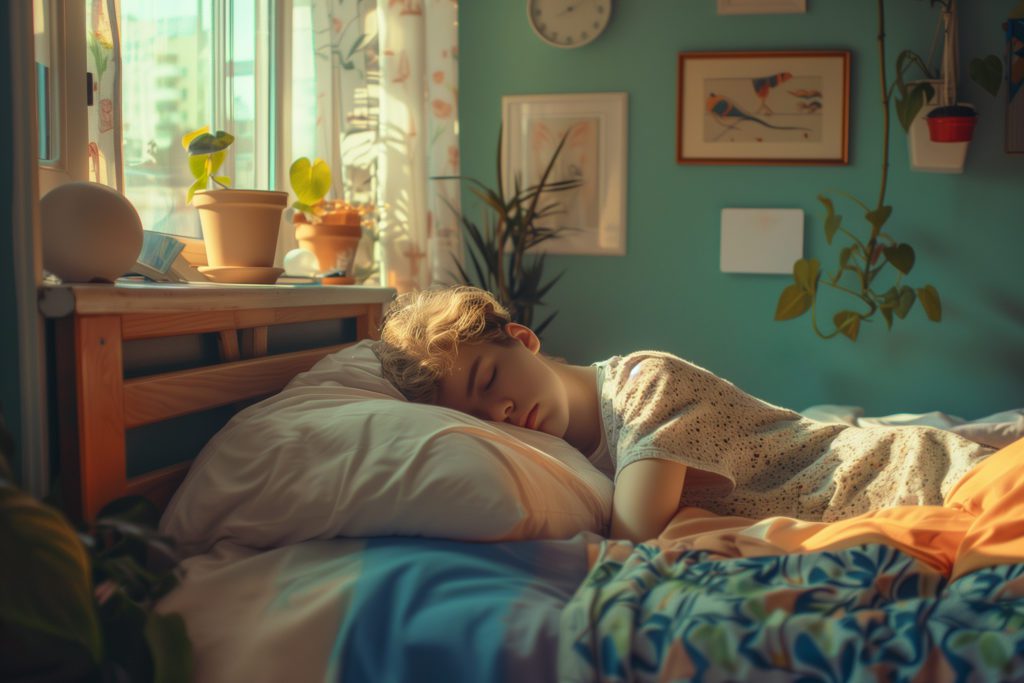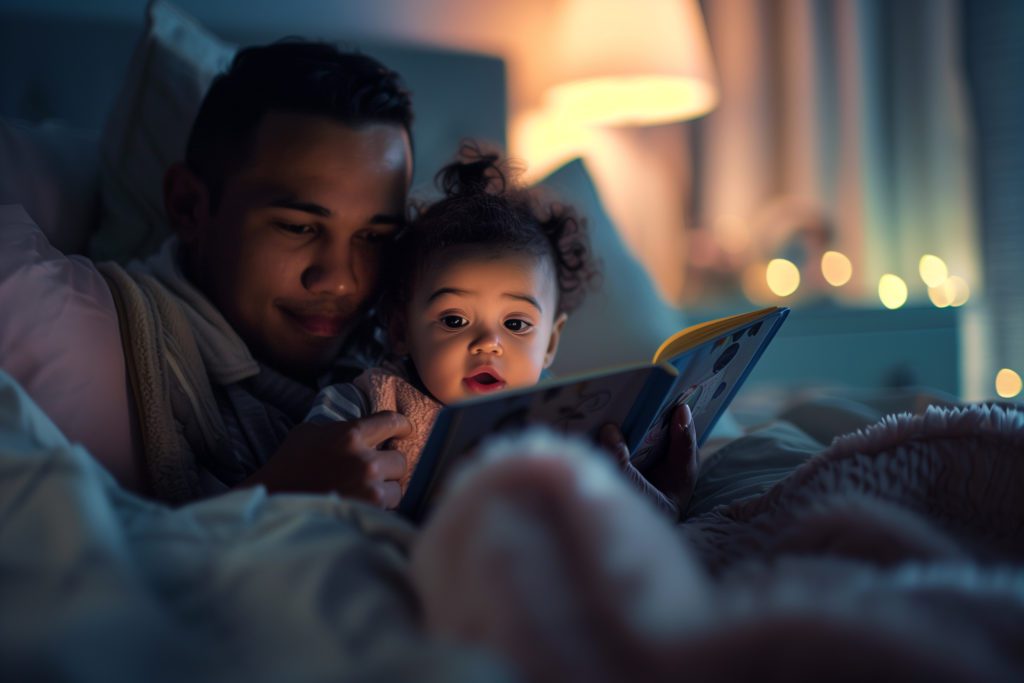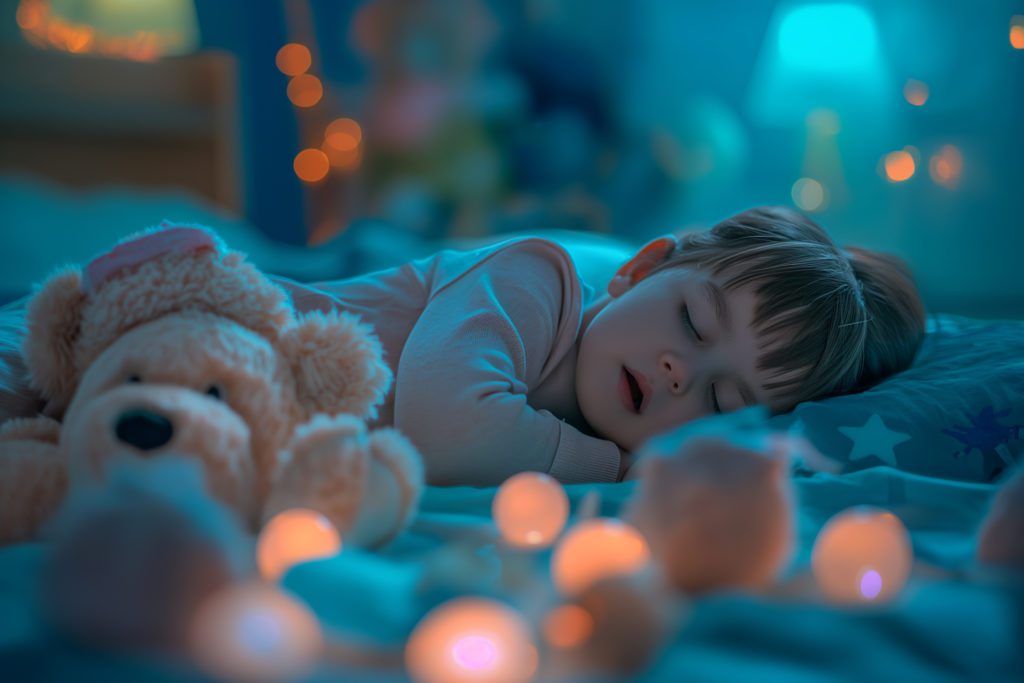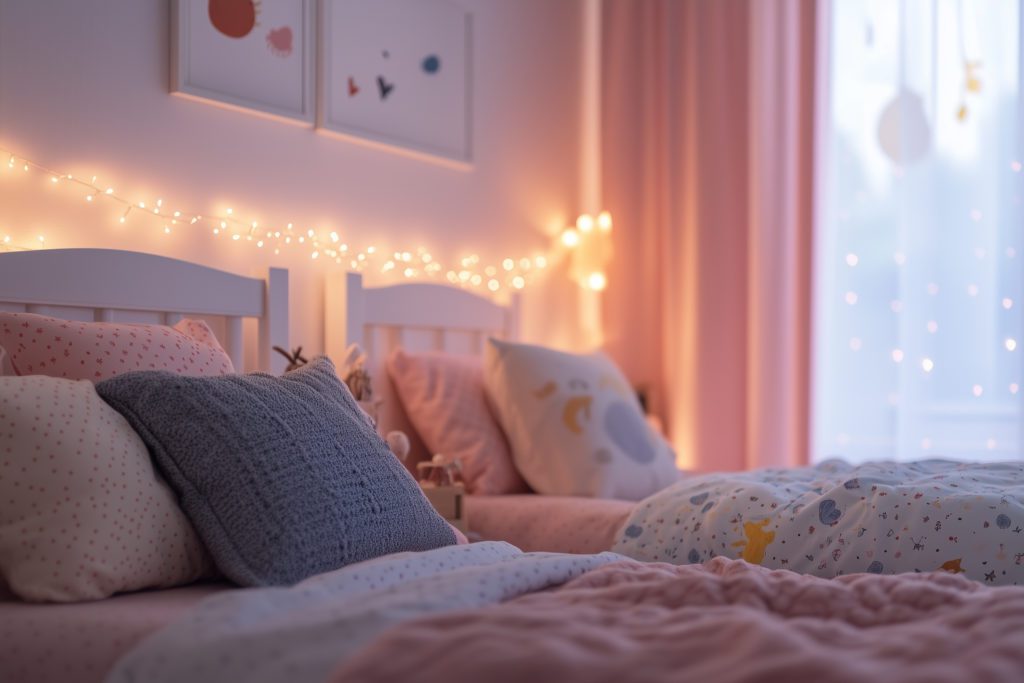
How Many Hours of Sleep Do Kids Need for Optimal Health?
Uncover the secrets to perfect sleep for your kids. Learn why sleep hygiene matters and how it can turbocharge your child's growth and happiness.

Establishing stellar sleep habits for children and adolescents
Is getting your child to bed each night more challenging than negotiating a peace treaty? If you're familiar with the nightly shenanigans of "just five more minutes" or morning grumbles that rival a bear with a headache, you're not alone.
Sleep isn't just a pause between playtimes for kids; it's a critical foundation for their growth, learning, and happiness. But exactly how many hours of sleep do kids need? It’s a common question with not-so-common answers that can make a world of difference.
We’ll uncover some top sleep hygiene tips for kids and teenagers, exploring how to turn those bedtime battles into peaceful nightcaps and bright-eyed mornings.
How many hours of sleep do kids need?
How much sleep does your child really need? While the magic number can vary, there are scientific guidelines tailored to each stage of childhood and adolescence. Here's a quick rundown:
Toddlers (1-2 years)
Toddlers require about 11 to 14 hours of sleep every 24 hours, including naps.
Preschoolers (3-5 years)
This age group should aim for 10 to 13 hours per 24 hours, which may also include a nap.
School-age children (6-12 years)
Children in this bracket do best with 9 to 12 hours per night.
Teenagers (13-18 years)
Teens need about 8 to 10 hours each night to function at their best.
But why such a range? Individual sleep needs are influenced by several factors, including physical activity levels, overall health, and daily stressors. Some kids might bounce off the walls after 9 hours, while others barely drag themselves out of bed with the same amount of shut-eye.
It's also crucial to consider genetic predispositions and lifestyle habits—some kids are naturally early birds or night owls. Paying attention to how your child responds to different amounts of sleep can help you tailor their bedtime to meet their health and development needs effectively.
Importance of establishing good sleep hygiene
Sleep hygiene refers to the habits and practices that are conducive to sleeping well on a regular basis. For children and adolescents, establishing good sleep hygiene is essential for physical and mental development.
Good sleep hygiene helps ensure that children get quality sleep, which is instrumental for their brain development and growth. A consistent bedtime routine, a sleep-friendly environment, and habits that promote restfulness all contribute to what we call sleep hygiene. This doesn't just help them fall asleep faster; it ensures they get the deep, restorative sleep their bodies need.
The benefits of such practices are far-reaching. Studies show that children with better sleep hygiene have higher academic performance. They are more attentive, have better memory retention, and display superior cognitive abilities compared to their sleep-deprived peers. Plus, adequate sleep plays a vital role in mood regulation. A well-rested child is more patient, emotionally stable, and less prone to behavioral problems.
Lastly, the health benefits are undeniable. Proper sleep supports the immune system, aids in metabolism regulation, and reduces the risk of obesity, making it a cornerstone of overall health. Teaching good sleep hygiene from an early age means setting your children up for success in multiple aspects of life.
Practical tips for sleep hygiene
Getting your kids to embrace bedtime without a fuss can feel like a Herculean task, but with a few tweaks to their daily routines, you can turn those restless nights around. Here’s how you can set the stage for better sleep:
Create a kid-friendly bedtime ritual
Stick to a soothing routine that might include a bath, storytime, and some cuddles. This not only helps signal to your little ones that it’s time to wind down but also adds a comforting predictability to their night.
Make their bedroom a sleep sanctuary
Power down those tablets and TVs well before bedtime to keep their little brains from getting too wired, while also making sure their room is cool, quiet, and dark. A night light is fine if they're a bit wary of the dark, and a fan or white noise machine can help drown out other distractions. The cherry on top? Invest in comfy mattresses and pillows that are just right for their size—not too big, not too small.
Watch the dinner and drinks
Skip any big meals right before bed. A small, healthy snack like yogurt or a banana can be perfect if they’re a bit peckish. Cut back on sodas and other caffeinated drinks in the evening—at least six hours before bedtime. Yes, that includes those sneaky energy drinks!
Encourage active days (not evenings)
Keeping your kids active during the day is a secret ingredient for better sleep. Exercise helps burn off that endless energy and increases their deep sleep cycle—a crucial phase for growth and health. However, timing is key. Remember to wrap up any high-energy playtime a few hours before bed, allowing their body and mind to unwind and get ready for sleep without being too revved up.
Gamify good sleep
Introducing sleep trackers can turn sleep hygiene into a fun challenge for your kids. These devices can help monitor how well and how long your kids sleep each night. You can set up friendly family competitions to see who gets the most restful sleep or consistently meets their sleep goals, adding a playful incentive to stick to bedtime routines.
With these playful yet practical adjustments, you can help your kids find their bedtime bliss, making evenings smoother and mornings a lot less groggy!
Enough sleep equals a happier household
Cultivating healthy sleep habits from an early age sets the stage for a lifetime of good nights and even better mornings. And when your kids sleep more, they aren’t the only winners—you get to enjoy the silence of the night, too! So here’s to peaceful sleep and a well-rested household!

Written by
Georgia Austin
Professionally trained copywriter, editor, and content marketing strategist with over 7 years of experience—working with brands like Nike, Siemens, Toshiba, Tommy Hilfiger, Culture Trip, and Klook.
Download Pillow
Get help
Press & News
Legal
Connect
X (Twitter)
Company
Copyright © Neybox Digital Ltd.



